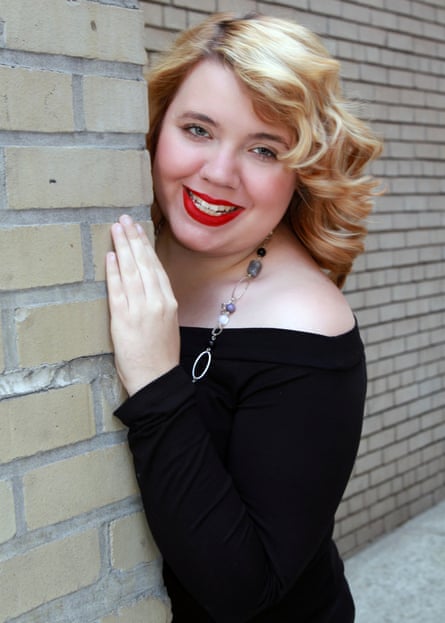“When I was growing up in the 60s and early 70s, conservatives were the enforcers of conformity,” author Lionel Shriver declared in the New York Times. But now, alas, she says in sorrow and in anger, it’s liberals who are censuring and censoring and “scrutinizing public figures for signs of sedition”. The identity politics left hates free speech; howling Twitter mobs are imposing Stalinism and pushing people of goodwill to support Donald Trump. Only silenced people like Shriver, bravely speaking truth to power from the pages of major international newspapers, can save us.
It’s a common narrative; people like Shriver love to see themselves as besieged by evil hordes of marginalized people with Twitter accounts. But a recent controversy around the YA trade publication Voices of Youth Advocates (Voya) magazine provides a telling counter-narrative. Because in this case, those marginalized people with Twitter accounts aren’t calling for censorship. They’re asking for freer speech. And they’re doing so in a way that suggests that maybe they were all along. Which means that, perhaps, it’s people like Shriver who want greater limits on certain voices and certain perspectives.
Voya is a journal for librarians working with young adult literature; it provides reviews of books with age level recommendations for librarians. For example, in a review a few months ago of Kody Keplinger’s novel Run, writer Rachel Axelrod wrote: “The story contains many references to Bo [one of the main characters] being bisexual and an abundance of bad language, so it is recommended for mature junior and senior high readers.”

Unfortunately, this particular recommendation has some problems. As Angie Manfredi pointed out on Twitter, Axelrod suggests that “being bisexual” makes the book unsuitable for younger readers. The review (which has now been pulled) also equates bad language and bisexuality. Bo does not have sex in Run, so the issue isn’t with explicit material, but simply with the fact that Bo is bi. As Tristina Wright, a bisexual SFF fantasy author, told me by email: “Many children are confident of their gender identity and even their sexual orientation at a young age. Sexual orientation does not equal sex and to perpetuate that is harmful to young children who are certain they crush on the same gender as their own or multiple genders.”
Wright wrote an email to Voya, telling them the review was unacceptable. “We are more than who we sleep with,” she told them. “We are more than sexual content. To see this sentence in your review … makes me wonder how you would treat my teen readers, many of whom ID as bisexual and find refuge in books with bisexual characters.”
Manfredi and Wright, strikingly, and in opposition to Shriver’s narrative, are not asking for more restrictions on what people can say. Rather they are asking for fewer restrictions. They want people, and especially children, to have access to material about bisexual people – material that has been, and still is, often denied to them. Librarians face strong pressures to limit student access to controversial books, including LGBT books, according to a recent School Library Journal survey. Alison Bechdel’s Fun Home, for example, has repeatedly been the target of censorship attempts on both the college and the high school level. Voya is in a position to set standards and norms for what is considered age-appropriate. Wright was asking them to take that responsibility more seriously, and to come down on the side of less censorship, and more access for bisexual kids who are hungry for stories about themselves.
Voya’s response was … not especially constructive. The editor printed Tristiana’s email without permission and replied, “Since this is Bi Visibility Week, I understand your need to find and destroy your enemies in a public forum, however, Voya magazine and I are not your enemies.” Over the week, the magazine issued more attacks, and then half apologies and apologies. They initially presented themselves as under siege from an unreasonable social media mob trying to enforce arbitrary rules – when in fact they were being asked themselves to stop enforcing narrow, rigid rules, and to encourage greater freedom of, and access to, expression. (Voya did not respond to multiple requests for comment, but a letter to Bustle, in which the magazine apologizes at length, is available here.)
Daniel José Older, a YA novelist and Guardian contributor, told me by phone that Voya’s response was familiar to those pushing for greater diversity in children’s literature – though usually such responses are not aired in public. “Every so often a Shriver will come out and let her defensiveness and feelings out, and then we get something to critique,” Older said. “But in general, the folks that don’t want the industry to change don’t have to say anything, because they have the luxury of keeping quiet and getting their way. So then we’re very public in trying to get ourselves seen on the page, and we become the aggressors because we’re the ones making noise.”
It’s that noise, not censorship, which is presented as dangerous by Shriver, and in Voya’s initial response. In the past, and still today, in children’s literature certain characters, certain ideas, certain themes and certain writers have been erased or ignored. They’ve been seen as too controversial, too scandalous, or too marginal. Wright, and those like her, are trying to make room for more stories, not fewer. But when you’ve held the soapbox unchallenged for centuries, it can feel like censorship the first time you’re interrupted, and asked, for a moment, to listen.

Comments (…)
Sign in or create your Guardian account to join the discussion